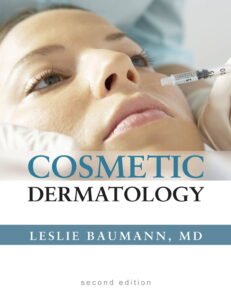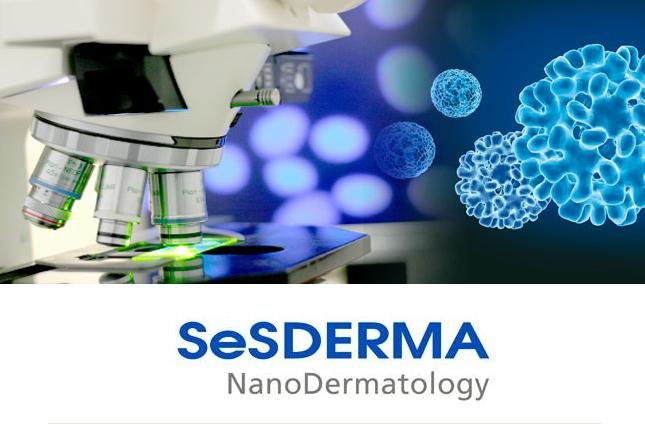Introduction
The integration of nanotechnology into various fields in recent years has transformed traditional approaches, offering enhanced efficiency and novel solutions. One of the most exciting areas witnessing this revolution is the field of cosmetics and dermatology. Nanotechnology applications are reshaping how we approach skin care, anti-aging treatments, and overall dermatological health. This post will delve into the science behind these innovations, exploring how nanotechnology is being utilized in cosmetics and dermatology, its benefits, challenges, and future prospects.

Understanding Nanotechnology in Cosmetics and Dermatology
What is Nanotechnology?
Nanotechnology involves manipulating matter at the nanoscale, typically between 1 and 100 nanometers. At this scale, materials exhibit unique properties, including increased surface area, enhanced reactivity, and improved interaction with biological systems. These properties make nanotechnology applications highly suitable for dermatology and cosmetics, where precise targeting and controlled delivery of active ingredients are paramount.
Historical Context and Evolution
The use of nanotechnology in cosmetics and dermatology is not entirely new. Ancient civilizations unknowingly used nanoparticles in various forms. However, the scientific understanding and intentional application of nanotechnology began in the late 20th century. Over the decades, advancements in material science and biomedical engineering have paved the way for sophisticated nanotechnology applications in skin care and dermatological treatments.
Key Nanotechnology Applications in Cosmetics
- Nanoemulsions: These are tiny, stable emulsions that enhance the delivery of active ingredients into the skin. They are used in moisturizers, sunscreens, and anti-aging products to improve efficacy and absorption.
- Nanocapsules: These are microscopic vesicles that encapsulate active ingredients, protecting them from degradation and releasing them in a controlled manner. Nanocapsules are used in a variety of skin care formulations.
- Nanoliposomes: Similar to nanocapsules, nanoliposomes are lipid-based vesicles that enhance the penetration of active ingredients into the deeper layers of the skin, making them effective in anti-aging and therapeutic products.
Benefits of Nanotechnology in Dermatology and Cosmetics
Enhanced Efficacy and Bioavailability
Nanotechnology applications in cosmetics and dermatology significantly improve the bioavailability of active ingredients. By reducing particle size, these ingredients can penetrate the skin more effectively, ensuring that they reach the target areas. This increased penetration enhances the overall efficacy of skin care products, leading to better and faster results.
Targeted Delivery and Controlled Release
One of the most significant advantages of nanotechnology is its ability to deliver active ingredients precisely where they are needed. Nanocarriers can be engineered to release their contents in response to specific triggers, such as pH changes or enzyme activity. This targeted delivery minimizes side effects and maximizes the therapeutic benefits of dermatological treatments.
Improved Stability and Shelf-Life
Active ingredients in cosmetics and dermatology products are often prone to degradation due to exposure to light, air, and other environmental factors. Nanotechnology can protect these ingredients by encapsulating them in stable nanocarriers, thereby extending their shelf-life and maintaining their potency over time.
Applications in Skin Care and Anti-Aging
Sun Protection
Sunscreens are among the most common cosmetics products to benefit from nanotechnology. Nanoparticles of zinc oxide and titanium dioxide provide superior UV protection compared to their larger counterparts. These nanoparticles form a transparent layer on the skin, offering broad-spectrum protection without the white residue often associated with traditional sunscreens.
Anti-Aging Treatments
Nanotechnology applications are revolutionizing anti-aging treatments. Nanoencapsulation allows for the stable incorporation of sensitive ingredients like retinoids, peptides, and antioxidants into skin care formulations. These ingredients can penetrate deeper into the skin, promoting collagen production, reducing wrinkles, and improving skin elasticity.
Acne and Blemish Treatments
Nanotechnology also plays a vital role in acne and blemish treatments. Nanoparticles can enhance the delivery of anti-inflammatory and antibacterial agents to the affected areas, reducing inflammation and preventing bacterial growth. This targeted approach helps clear acne more effectively and prevents scarring.
Challenges and Considerations
Safety and Regulatory Concerns
Despite the numerous benefits, the use of nanotechnology in cosmetics and dermatology raises several safety and regulatory concerns. The small size of nanoparticles means they can penetrate deeper into the skin and potentially enter the bloodstream, leading to unforeseen health risks. Comprehensive safety assessments and stringent regulatory frameworks are essential to ensure the safe use of nanotechnology applications in these fields.
Public Perception and Acceptance
Public perception of nanotechnology plays a crucial role in its acceptance and widespread use. There is a need for increased awareness and education about the benefits and safety of nanotechnology in cosmetics and dermatology. Transparent communication from manufacturers and regulatory bodies can help build consumer trust and acceptance.
Technical and Manufacturing Challenges
Developing and manufacturing nanotechnology-based products involves complex processes and significant investment. Ensuring consistency, stability, and scalability of these products poses technical challenges that need to be addressed to make nanotechnology applications more accessible and affordable.
Future Prospects and Innovations
Personalized Skin Care
The future of nanotechnology in cosmetics and dermatology lies in personalized skin care. Advances in genomics and bioinformatics are paving the way for customized formulations tailored to an individual’s genetic makeup and skin type. Nanotechnology will play a pivotal role in developing these personalized treatments, ensuring precise delivery of active ingredients for optimal results.
Smart Nanomaterials
Smart nanomaterials that respond to environmental stimuli are an exciting area of research. These materials can adapt their properties based on temperature, humidity, and other external factors, providing dynamic skin care solutions. For example, smart nanocarriers can release hydrating agents in response to dry conditions or deliver soothing compounds when exposed to UV radiation.
Integration with Other Technologies
The integration of nanotechnology with other emerging technologies, such as artificial intelligence and wearable devices, holds immense potential. AI can analyze skin conditions and recommend suitable nanotechnology-based products, while wearable devices can monitor skin health and deliver real-time treatments using nanomaterials.
Conclusion
The science behind cosmetics and dermatology in nanotechnology applications is a fascinating and rapidly evolving field. From enhancing the efficacy of skin care products to providing targeted treatments for various skin conditions, nanotechnology is revolutionizing the way we approach skin health and beauty. While challenges remain, the future prospects are promising, with innovations poised to deliver personalized, smart, and highly effective solutions.
As we continue to explore the potential of nanotechnology in cosmetics and dermatology, it is crucial to address safety and regulatory concerns to ensure these advancements benefit consumers without compromising their health. The journey towards integrating nanotechnology into our daily skin care routines is just beginning, and the possibilities are endless.
We invite you to share your thoughts and experiences with nanotechnology in cosmetics and dermatology. Have you tried any nanotechnology-based products? What are your views on the future of this exciting field? Leave a comment below and join the conversation!






1 Comment
Pingback: How to Understand Applications of Nanotechnology in Neuroscience - greenpolymershub.com